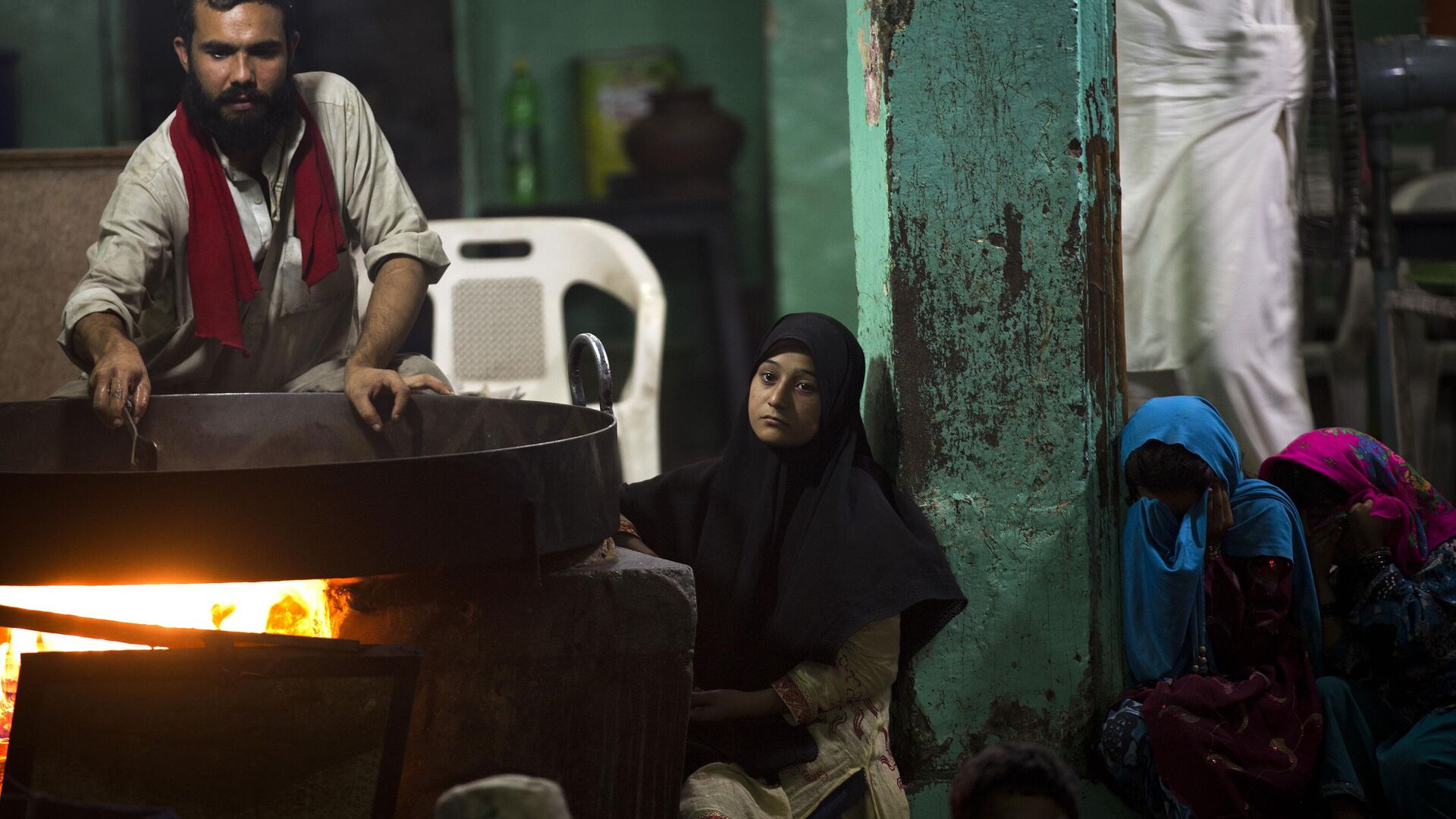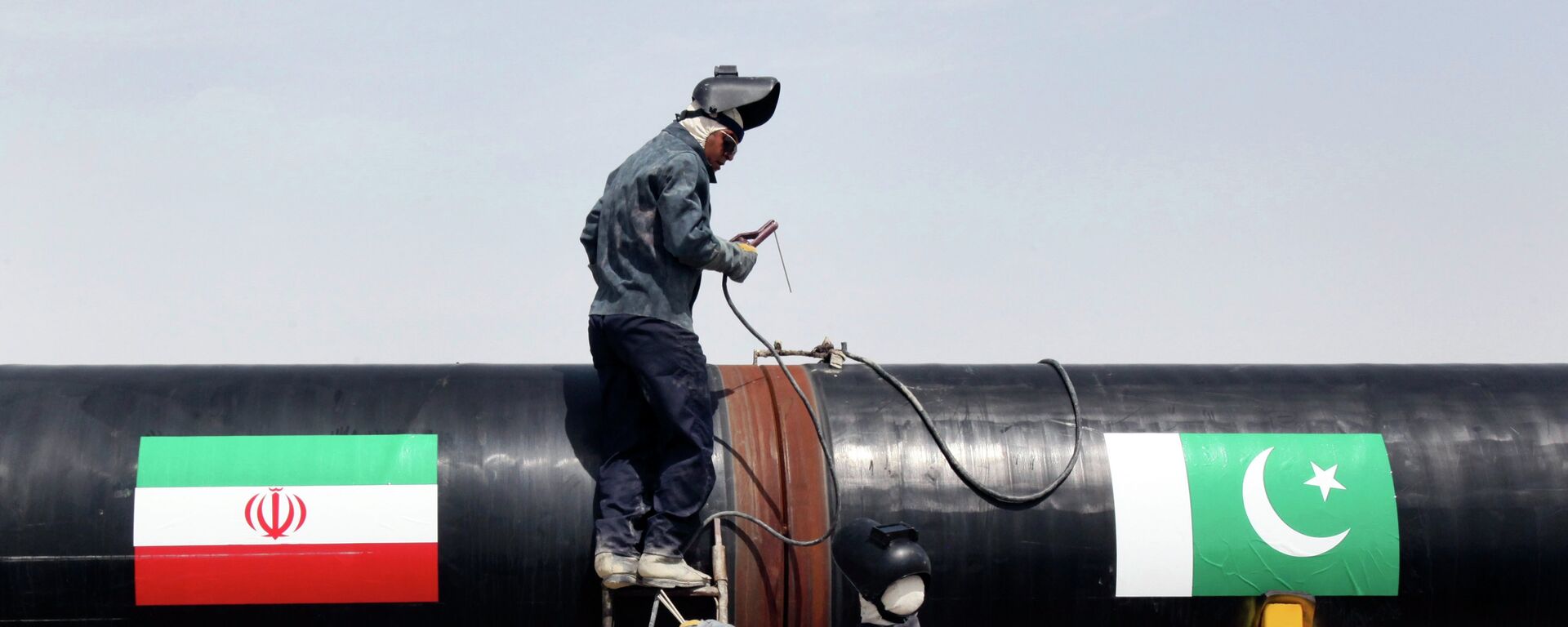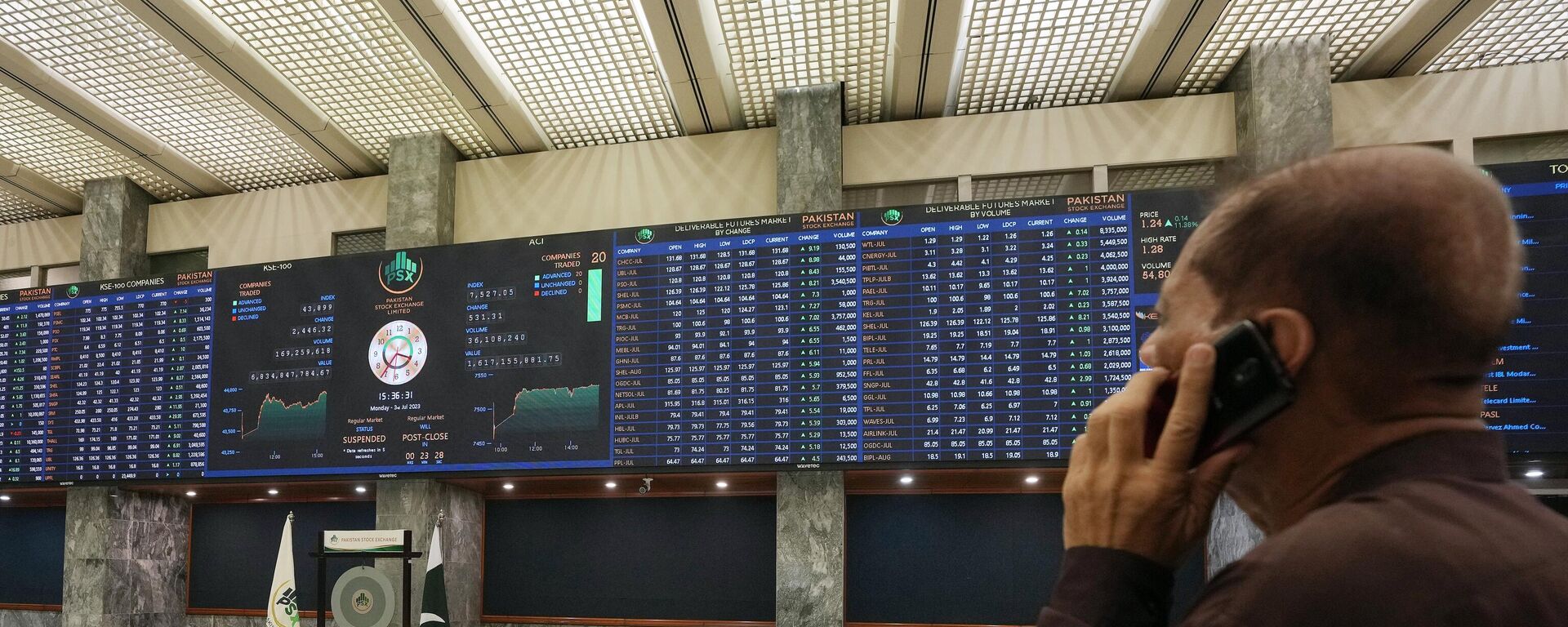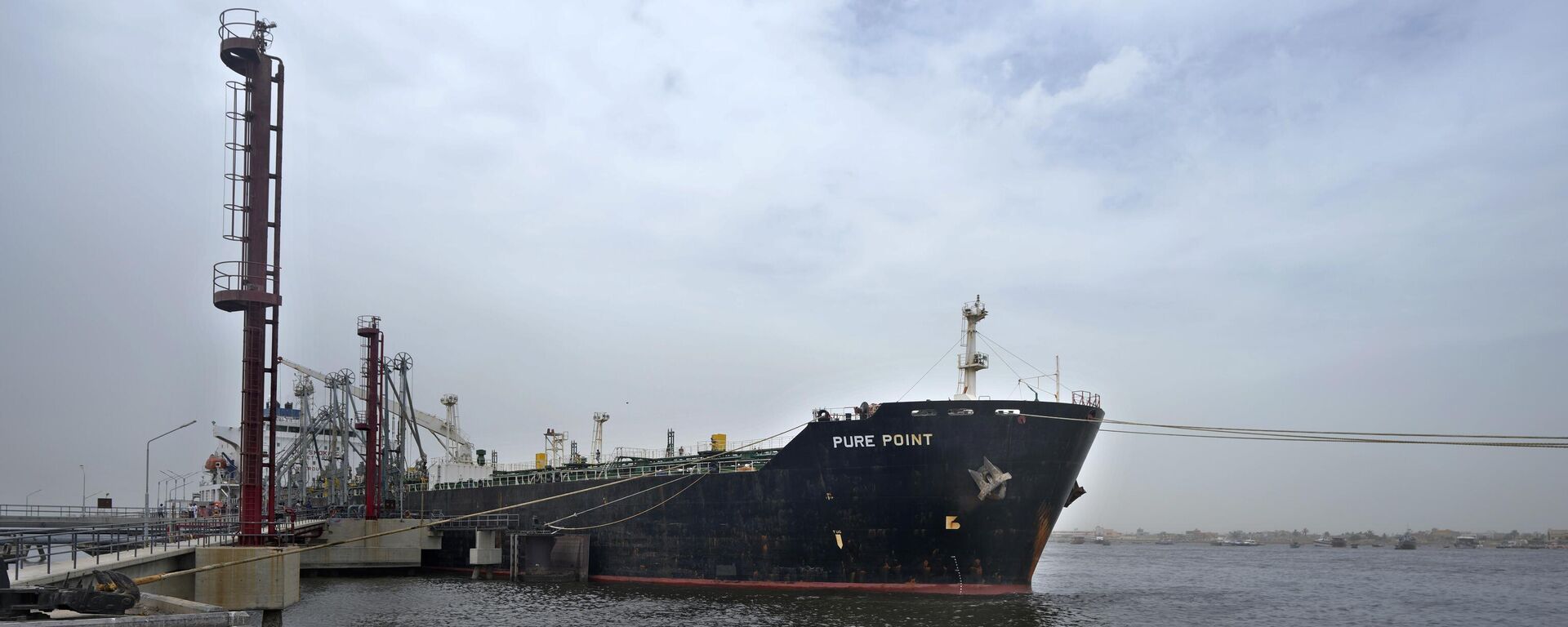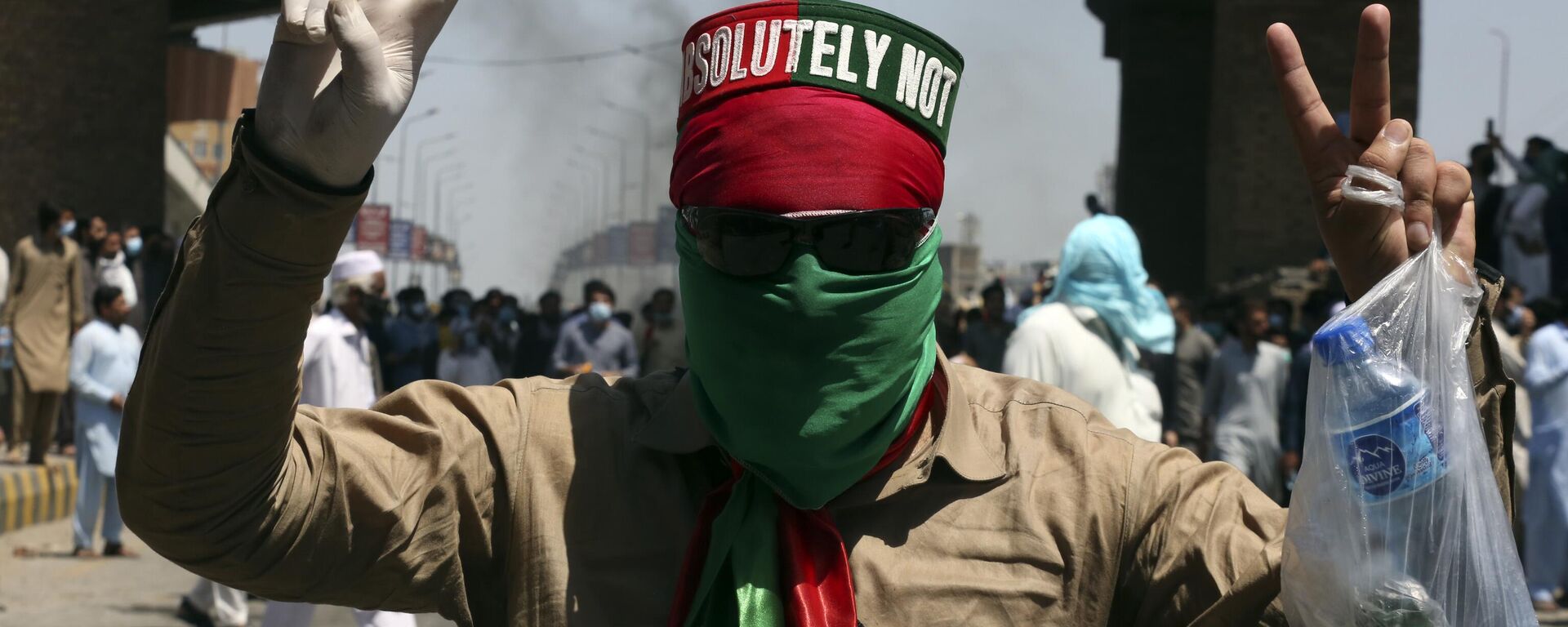https://sputniknews.in/20230827/a-rare-commodity-will-pakistan-be-left-with-no-gas-by-winter-3853622.html
'A Rare Commodity': Will Pakistan be Left With No Gas by Winter?
'A Rare Commodity': Will Pakistan be Left With No Gas by Winter?
Sputnik India
Pakistan faces a shortage of liquefied natural gas (LNG) but has failed to secure tenders for purchase from the international market for winter. Sputnik takes... 27.08.2023, Sputnik India
2023-08-27T19:15+0530
2023-08-27T19:15+0530
2023-08-27T19:15+0530
pakistan
south asia
gas pipeline
oil and gas reserves
global economy
fuel prices
imf loan
political crisis
shehbaz sharif
imran khan
https://cdn1.img.sputniknews.in/img/07e7/04/01/1396045_0:154:3093:1894_1920x0_80_0_0_87d35ba2af82dd9ca957bcf36f03c2a2.jpg
Over the last several months, Pakistan has attempted to procure over ten shipments of liquefied natural gas (LNG), but received no offers for its tender, which means that the country will very likely face a severe energy crisis in the coming months.The LNG shortage is a matter of grave concern for Pakistan's 240 million citizens, who have faced long-running power cuts because of gas shortages, as the country's power plants are heavily reliant on LNG imports.Ignored Tenders and Potential DealsAccording to LNG Prime platform's July's evaluation report, Pakistan LNG Ltd. was unable to secure tenders with delivery windows for October, November and December. The Pakistani company put up the first requests back in April, but has been unsuccessful.However, in July Pakistan's former prime minister Shehbaz Sharif announced that a legal framework has been put together with Azerbaijan's State Oil Company SOCAR to supply LNG to Pakistan. The import of low-cost LNG was signed on flexible terms for a period of one year. Under this deal, Azerbaijan will offer Pakistan 12 low-cost LNG cargoes per year, but Islamabad will not be bound to buy the gas.In another potential deal, Pakistan LNG Ltd. received offers for the supply of super chilled fuel from Singapore-based Trafigura in response to a tender it had issued in July for the months of January and February 2024, but it is unconfirmed whether Pakistan will buy it or not considering the high price of the product.A report by Bloomberg pointed out that the Trafigura offer is the first Pakistan has received for its tenders in about a year.Why is Pakistan Unable to Buy LNG?Pakistan's turbulent economic situation has resulted in several overseas banks not accepting letters of credit (LOC) from Pakistani companies to purchase LNG shipments. A letter of credit is a pledge by a lender to repay funds if the buyer is unable to do so. The increasingly weak standing of Pakistani rupees could be another reason why it was unable to secure the tenders.Last year global prices of oil and gas surged and Europe took most of the spot supplies, hence Pakistan’s inability to compete amid the rising LNG prices has also led to significant shortages.Moreover, the political turmoil within Pakistan has also resulted in international companies fearing to commit to a long term deal because of unpredictability. The high external debt, shrinking foreign exchange reserves and a rising risk of a sovereign default have further aggravated the situation. Pakistan's annual inflation reached an all-time high in May, hitting almost 38%, compared to 11.3% in the same period last year. Hence, all these factors make international companies wary about doing business with Pakistan at the moment.Importance of LNG for PakistanThere are many different industries that rely on LNG such as textiles, ceramics, glass and steel. These industries need a consistent supply of gas to maintain timely production and deliveries, and to have a constant production cost. The deficiency of gas results in low production capacities, long delays, increased manufacturing costs and even shutting down of industries.Moreover, insufficiency of gas not only affects the industries directly, but also has a ripple effect on the entire supply chain of smaller industries and businesses that depend on the products or services of these gas-dependent industries. Hence, the difficulties faced by thousands of smaller businesses due to the gas shortage affects the overall economy.Pakistan, as an agriculture-based economy, heavily relies on good fertilizer to ensure healthy crop production. The fertilizer industry consumes approximately 20% of the country’s gas supply for urea production and without it the whole industry faces a colossal energy deficit, resulting in higher fertilizer prices that in turn affect the agricultural sector’s growth and farmers’ livelihoods.The urgency of finding a reliable gas supply is evident in the fact that Pakistani industries are willing to purchase gas at high international prices.In domestic terms LNG cylinders are used by millions of Pakistani households for cooking purposes as there is a lack of access to natural gas via pipelines, even in many districts of big cities. This shortage of gas means higher prices for the cylinders, which many people cannot afford given the ongoing economic crisis. With winter months not far away, many cities will see a temperature drop and people will need gas for heating water and their homes.Dire Consequences of Gas ShortageAcross Punjab province, the government has already worked out a gas load shedding timetable with supplies available three times a day - breakfast, lunch and dinner.In a comment for Sputnik India, Arooj Sami, a resident of Lahore, explained that in her household gas is available for two hours in the morning, one hour in the afternoon and three hours during dinner time. In total Sami’s household is left without gas for 18 hours a day.Last year Pakistan's gas shortage added to the precarious economic situation, resulting in millions of losses to its textile and other industries. Many fear that insufficient fossil fuels such as gas and oil also means that Pakistan’s agriculture industry will suffer and force the country to import more food, a debilitating prospect considering that the prices of basic food items such as grain, sugar and vegetable oil have risen exponentially.According to one report, power outages in 2022 inflicted an estimated $70 million loss to the country’s textile industry, its largest export sector.The dwindling gas reserves and Pakistan's inability to secure LNG from the international market for the winter months will hit its exports, power industries, textile, food factories and general morale of the population.Earlier this year, Pakistan narrowly missed defaulting by draining its foreign reserves and securing a controversial IMF bailout. However, double-digit inflation has made debt payments nearly impossible and many feel that the IMF loan is just a drop in the bucket in terms of what the country needs in the grand scheme of things.
https://sputniknews.in/20230809/facing-us-pressure-pakistan-cancels-iran-pipeline-deal-3467059.html
https://sputniknews.in/20230725/pm-says-imf-steamrolled-pakistan-into-power-price-hikes---3160628.html
https://sputniknews.in/20230614/pakistan-awaits-lower-petrol--diesel-prices-after-large-discounted-russian-oil-shipment--2472835.html
https://sputniknews.in/20230630/accepting-imf-terms-could-cause-social-unrest-in-pakistan-expert-warns-2764357.html
pakistan
south asia
Sputnik India
feedback.hindi@sputniknews.com
+74956456601
MIA „Rossiya Segodnya“
2023
Aneela Rashid
https://cdn1.img.sputniknews.in/img/07e6/0c/0d/74548_0:0:485:484_100x100_80_0_0_821526e967ae85d041e2d30ee34fa1de.jpg
Aneela Rashid
https://cdn1.img.sputniknews.in/img/07e6/0c/0d/74548_0:0:485:484_100x100_80_0_0_821526e967ae85d041e2d30ee34fa1de.jpg
News
en_IN
Sputnik India
feedback.hindi@sputniknews.com
+74956456601
MIA „Rossiya Segodnya“
Sputnik India
feedback.hindi@sputniknews.com
+74956456601
MIA „Rossiya Segodnya“
Aneela Rashid
https://cdn1.img.sputniknews.in/img/07e6/0c/0d/74548_0:0:485:484_100x100_80_0_0_821526e967ae85d041e2d30ee34fa1de.jpg
pakistan, south asia, gas pipeline, oil and gas reserves, global economy, fuel prices, imf loan, political crisis, shehbaz sharif, imran khan
pakistan, south asia, gas pipeline, oil and gas reserves, global economy, fuel prices, imf loan, political crisis, shehbaz sharif, imran khan
'A Rare Commodity': Will Pakistan be Left With No Gas by Winter?
Pakistan faces a shortage of liquefied natural gas (LNG) but has failed to secure tenders for purchase from the international market for winter. Sputnik takes a look at why gas shortages are concerning for citizens and the country's many vital industries.
Over the last several months, Pakistan has attempted to procure over ten shipments of liquefied natural gas (LNG), but received no offers for its tender, which means that the country will very likely face a severe energy crisis in the coming months.
LNG is a natural gas that has been cooled down to liquid form for ease and safety of non-pressurized storage or transport. It is used in many different industries across Pakistan, contributing 38% of the country’s total primary energy supply mix.
The LNG shortage is a matter of grave concern for Pakistan's 240 million citizens, who have faced long-running power cuts because of gas shortages, as the country's power plants are heavily reliant on LNG imports.
Ignored Tenders and Potential Deals
According to LNG Prime platform's July's evaluation report, Pakistan LNG Ltd. was unable to secure tenders with delivery windows for October, November and December. The Pakistani company put up the first requests back in April, but has been unsuccessful.
However, in July Pakistan's former prime minister Shehbaz Sharif announced that a legal framework has been put together with Azerbaijan's State Oil Company SOCAR to supply LNG to Pakistan. The import of low-cost LNG was signed on flexible terms for a period of one year. Under this deal, Azerbaijan will offer Pakistan 12 low-cost LNG cargoes per year, but Islamabad will not be bound to buy the gas.
"SOCAR will offer LNG cargo to Pakistan every month and Pakistan will decide whether we have to buy this cargo at this price," Sharif had said.
In another potential deal, Pakistan LNG Ltd. received offers for the supply of super chilled fuel from Singapore-based Trafigura in response to a tender it had issued in July for the months of January and February 2024, but it is unconfirmed whether Pakistan will buy it or not considering the high price of the product.
A report by Bloomberg pointed out that the Trafigura offer is the first Pakistan has received for its tenders in about a year.
Why is Pakistan Unable to Buy LNG?
Pakistan's turbulent economic situation has resulted in several overseas banks not accepting letters of credit (LOC) from Pakistani companies to purchase LNG shipments. A letter of credit is a pledge by a lender to repay funds if the buyer is unable to do so. The increasingly weak standing of Pakistani rupees could be another reason why it was unable to secure the tenders.
Last year global prices of oil and gas surged and Europe took most of the spot supplies, hence Pakistan’s inability to compete amid the rising LNG prices has also led to significant shortages.
Moreover, the political turmoil within Pakistan has also resulted in international companies fearing to commit to a long term deal because of unpredictability. The high external debt, shrinking foreign exchange reserves and a rising risk of a sovereign default have further aggravated the situation.
Pakistan's annual inflation reached an all-time high in May, hitting almost 38%, compared to 11.3% in the same period last year. Hence, all these factors make international companies wary about doing business with Pakistan at the moment.
Importance of LNG for Pakistan
There are many different industries that rely on LNG such as textiles, ceramics, glass and steel. These industries need a consistent supply of gas to maintain timely production and deliveries, and to have a constant production cost. The deficiency of gas results in low production capacities, long delays, increased manufacturing costs and even shutting down of industries.
Moreover, insufficiency of gas not only affects the industries directly, but also has a ripple effect on the entire supply chain of smaller industries and businesses that depend on the products or services of these gas-dependent industries. Hence, the difficulties faced by thousands of smaller businesses due to the gas shortage affects the overall economy.
Pakistan, as an agriculture-based economy, heavily relies on good fertilizer to ensure healthy crop production. The fertilizer industry consumes approximately 20% of the country’s gas supply for urea production and without it the whole industry faces a colossal energy deficit, resulting in higher fertilizer prices that in turn affect the agricultural sector’s growth and farmers’ livelihoods.
The urgency of finding a reliable gas supply is evident in the fact that Pakistani industries are willing to purchase gas at high international prices.
In domestic terms LNG cylinders are used by millions of Pakistani households for cooking purposes as there is a lack of access to natural gas via pipelines, even in many districts of big cities. This shortage of gas means higher prices for the cylinders, which many people cannot afford given the ongoing economic crisis. With winter months not far away, many cities will see a temperature drop and people will need gas for heating water and their homes.
Dire Consequences of Gas Shortage
Across Punjab province, the government has already worked out a gas load shedding timetable with supplies available three times a day - breakfast, lunch and dinner.
In a comment for Sputnik India, Arooj Sami, a resident of Lahore, explained that in her household gas is available for two hours in the morning, one hour in the afternoon and three hours during dinner time. In total Sami’s household is left without gas for 18 hours a day.
"We now have to schedule our cooking and shower time according to the availability of gas and it is not even winter yet. This happened last year as well but in October, however, this year gas shortages have started in July so it means gas is becoming a rare commodity in the country," Sami shared.
Last year Pakistan's gas shortage added to the precarious economic situation, resulting in millions of losses to its textile and other industries. Many fear that insufficient fossil fuels such as gas and oil also means that Pakistan’s agriculture industry will suffer and force the country to import more food, a debilitating prospect considering that the prices of basic food items such as grain, sugar and vegetable oil have risen exponentially.
According to one report, power outages in 2022 inflicted an estimated $70 million loss to the country’s textile industry, its largest export sector.
The dwindling gas reserves and Pakistan's inability to secure LNG from the international market for the winter months will hit its exports, power industries, textile, food factories and general morale of the population.
Earlier this year, Pakistan narrowly missed defaulting by draining its foreign reserves and securing a controversial IMF bailout. However, double-digit inflation has made debt payments nearly impossible and many feel that the IMF loan is just a drop in the bucket in terms of what the country needs in the grand scheme of things.
